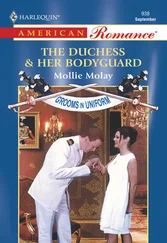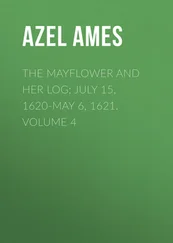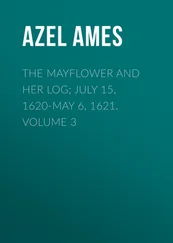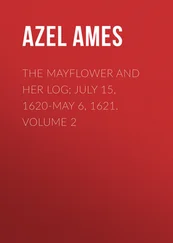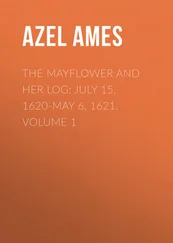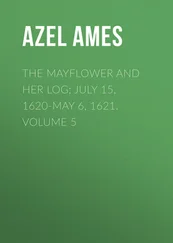The presiding judge was a Colonel Sakamone of garrison headquarters, but the judge with the greatest experience in the inquisitorial Japanese system, which – as the researchers tell me – is based on the Code Napoleon, was one Major Torosei. A third major filled out the trinity of judges.
Hidaka the interpreter would later tell Lydon that his own senior officer, Colonel Tomonaga, had declined to serve as judge. He had made it clear to Hidaka he thought the men should simply be put in Changi as POWs. But Colonel Sakamone, a former policeman, disagreed. He was a fanatic, said Hidaka, even though fanaticism was getting less popular with officers as the war went on. Sakamone had said at dinner one night that he believed the war would begin only when the Japanese mainland was invaded, and he was looking forward to that cataclysm. Everything up to now had apparently been mere prelude. The war would be won on ancestral land, he said. Sakemone had taken the job which Hidaka’s colonel refused.
The prosecutor or attorney-judicial, a man the judges have already met with to decide the shape of the trial, was a professional lawyer, Major Minatoya. What did Minatoya think as he prepared his papers? Tokyo burning to ash, the home islands falling, even if the great nuclear secret had a month to go before it would be revealed. Singapore gravid fruit hanging on the empire’s tree. Yet at such times of uncertainty men cling to the certainty of routine duty.
Next to Minatoya the prosecutor sat the young Hidaka, Leo’s friend, in his white civilian suit. Hidaka has a slightly spiv-ish reputation amongst the officers for having once worked as a bookkeeper and greeter of foreigners in a Tokyo nightclub before the war, but he was always a meek figure, and the enthusiasts and hobbyists tell me he was not above soliciting women for officers. He was in love with a Tokyo nightclub dancer whom he’d marry after the war.
The supreme figure of the trial sat in the gallery at the rear of the courtroom, above the double-leafed doorway of the lecture hall. Major General Okimasa, head of the judicial apparatus for the Seventh Area Army, wanted to see the process through. He must have had a glimmering, given all his robust activities in Saigon and Singapore, that his own future might contain a suicide by blade, or else a scaffold. In Indochina and Malaya he had been a monster for his gods. I would like to think his foreshadowings of fear were unmanning him even then, but I do not believe they did. He certainly seemed to feel a kind of administrative urgency to get this trial settled.
Each of the prisoners was asked to state, one by one, his birthplace, his unit, rank, name and age. To what extent the not yet identified Stockholm syndrome was at work in Leo and the others, I have no idea. They were human, after all. That growth of solidarity between captor and captive, particularly when exalted by the solemn ritual of a trial and the prospect of a formal execution, probably works even on heroes. Was Leo still looking for, grateful for, signs of humanity even in Sakamone the presiding judge or in Minatoya the prosecutor, or perhaps even from the real presiding presence of the general in the gallery?
Lydon later told me that the Japanese came to trial only when they felt the case was eminently provable against the accused. Their inquisitorial process was begun that afternoon, and to match the prosecutor, Minatoya, there was no corresponding defence counsel.
Minatoya, I also knew from briefings by Tom Lydon, had set out to prove the men were both perfidious and heroic – that was always Hidaka’s claim, anyhow. The ‘stratagem’ of which they were guilty was that except for a few commissioned officers, the party willingly refrained from wearing badges or caps to show their ranks, so that they could not be recognised as fighting members of the armed forces to which they belonged. They had used camouflage dye on exposed skin surfaces. Doucette and Leo and six other members had worn sarongs! A Japanese national flag was flown by them, and a further Japanese flag was painted on the stern of Nanjang.
On October 10th of the previous year, the party under Lieutenant Colonel Doucette had launched a sudden and heavy fusillade at a Kaso Island police boat containing five Malay policemen. Four of the crew of the police boat were killed. By December 1944, the time of apprehension of all the accused persons standing before the court, they had confronted Japanese garrisons on a number of islands and killed Captain Matsukata, Lieutenant Hiroshi, along with some fifty-five other army personnel. Thus they had engaged in hostile activities without wearing uniforms, and had also used the vessel as a stratagem of offence and penetration.
The second charge was espionage, the accusation that various of the party had collected intelligence to take back to Australia, information on the strength of garrisons, movement of shipping, docking arrangements at Bintang and Bukum, bauxite mining at Lingaa Island, etc., etc. While waiting for the party to return to NE1, my cousin Mel Duckworth had made notes on the passage, frequency of military aircraft, anti-aircraft defences and shipping. Now they brought these forward and questioned the Englishman Filmer, the man who had landed on D-Day but then blundered into Memerang.
The prosecutor held up one Japanese flag, one notebook, one sketchbook, one camera, seventeen negatives. Yes, all that property belonged to Memerang, said Filmer. The flag had been waved, the photographs taken.
In lonely years I would complain savagely to myself about Filmer. I had thought him a dupe – he reminded me of the British commander at Singapore, Perceval, who was foxed into surrendering by the Tiger of Malaya, Yamashita, even though many officers under him wanted to fight on. The pattern, I believed, was repeated in a modest but terrible way by Filmer. My thesis had been that Filmer, the professional officer, blinded by fatuous codes of military behaviour – or, to invoke it again, the Stockholm syndrome – failed to attack the charges head on. In a strange way the fool felt honoured by them. Combine this with the fact that he was probably the one who opened fire on the Malay police boat off Kaso, and thus gave their presence away, and you have the reason why, whenever I’ve encountered Major Filmer in dreams, I’ve torn the flesh from him and flayed him with bitter Australian insult. Basically, my grievance against him was that he was the first to accept the Japanese charges, and he laid down the pattern for his men to do the same. Major Minatoya asked him, Did you commit these crimes, and Filmer said yes without qualification. When he was asked how long his group had plotted their attack, he said he only knew the details of it a few days before he left Australia, a statement which shows that compared to Leo he was one of those ring-ins Doucette had a weakness for, that he was brought along by Doucette on impulse, or because he pleaded. And yet here he was talking on behalf of the whole party, and impervious to the wrongness of that, as only a professional officer could be. He agreed with Minatoya that rank should always be worn, so that the enemy could identify officers. That was an asinine thing to say, as our side had little training in their badges of rank, and I bet their side had little training in ours.
Did Leo resent him giving it all away like this, or was he resigned, or was he stuck by now into some grotesque officer code of honour too? Had all the Bushido nonsense got to both of them, so that they were competing for honour with the Japanese? I don’t want to mock that, since they were willing to die for it. But men become dupes for codes of honour which any sensible woman could see through in a second. Yes, said Filmer, they had a Japanese flag on the junk and were thus sailing under false colours. But no, they had not themselves painted the Japanese flag on the stern of the junk. It had already been put there by the Malay owner. At least five silenced automatic weapons on the junk opened up on the patrol boat at Kaso, he admitted. He didn’t mention it was almost certainly he who first pulled the trigger. He began shooting because others did, he said. As the police vessel approached, everyone thought it was Japanese, he said, not Malay police, and they yelled, Patroller, patroller! They did not know it was an unarmed vessel. No, no British or Australian flag was hoisted on the junk before they opened fire. There was barely time. Doucette did not directly order them to open fire.
Читать дальше




